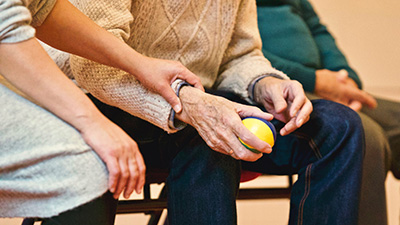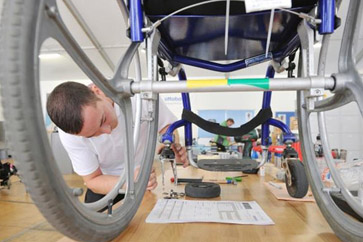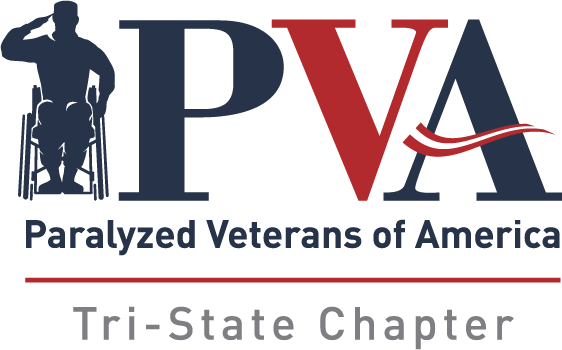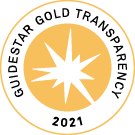Peer Mentoring

One of the main goals of the Peer Mentoring Program is to maintain a working relationship with VA hospitals in Oregon and Washington, private hospitals and rehabilitation centers. In doing so, Tri-State PVA helps facilitate the re-entry of spinal cord and/or neurologically impaired persons and their families into society through personal contacts, technical assistance and education. In 1994, Tri-State PVA established the Health Care Policy Review Program to monitor the needs of the mobility impaired veteran and provide information on healthcare reform.
The Tri-State chapter is committed to maintaining involvement on a personal level at the areas VA facilities. Once a month visits are made to the Spinal Cord Injury Unit at VAMC Seattle. Our main goal is to assist in any way possible the adjustment to a new and very different life of injured servicemen and women.

Prosthetic Medical Equipment Purchase and Repairs
The Hospital Liaison for Paralyzed Veterans of America Tri-State Chapter, is frequently contacted about delays obtaining new prosthetic equipment and repairs to prosthetic equipment issued through the VA. Many of our members endure long waits not only for customized wheelchairs, patient lifts, and other high-dollar prosthetic equipment, but lower cost non-customized prosthetic equipment as well. How does the prosthetic purchasing and equipment repair process work, how long should I wait before contacting prosthetic and who do I contact?
My goal is to provide as many answers as possible. View the PDF below to learn more and see answers to frequently asked questions.

Quicklinks
Home
Programs
About
Annual Events
Events Calendar
Item Donations
Resources
Contact
Mailing:
PO Box 1202
Silverton, OR 97381
Physical:
600 N. Water St.
Silverton, OR 97381
Phone: (503) 362-7998
Email:TriStatePVA@TriStatePVA.org


